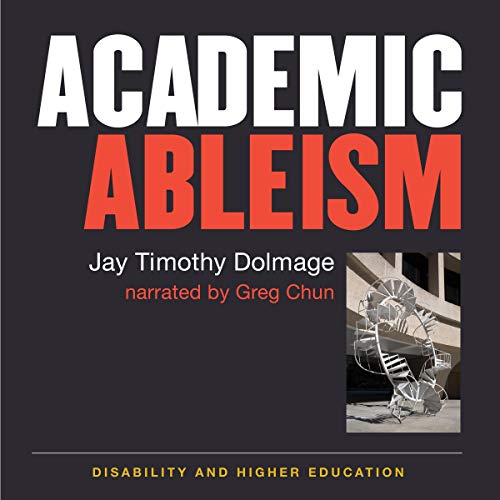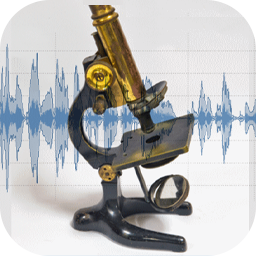Most Commented
Academic Ableism: Disability and Higher Education (Corporealities: Discourses of Disability) [Aud...




Description material

Academic Ableism: Disability and Higher Education (Corporealities: Discourses of Disability) [Audiobook]
By: Jay T Dolmage
Narrated by: Greg Chun
English | 06-12-20 | 0472003666 | 8h 25m | M4B@125 kbps | 459.45 MB
Academic Ableism brings together disability studies and institutional critique to recognize the ways that disability is composed in and by higher education and rewrites the spaces, times, and economies of disability in higher education to place disability front and center. For too long, argues Jay Timothy Dolmage, disability has been constructed as the antithesis of higher education, often positioned as a distraction, a drain, a problem to be solved. The ethic of higher education encourages students and teachers alike to accentuate ability, valorize perfection, and stigmatize anything that hints at intellectual, mental, or physical weakness, even as we gesture toward the value of diversity and innovation. Examining everything from campus accommodation processes, to architecture, to popular films about college life, Dolmage argues that disability is central to higher education and that building more inclusive schools allows better education for all.
DOWNLOAD
Join to our telegram Group
Information
Users of Guests are not allowed to comment this publication.
Users of Guests are not allowed to comment this publication.
Choose Site Language
Recommended news
Commented


![eM Client Pro 9.2.1735 Multilingual [Updated]](https://pikky.net/medium/wXgc.png)






![Movavi Video Editor 24.0.2.0 Multilingual [ Updated]](https://pikky.net/medium/qhrc.png)

